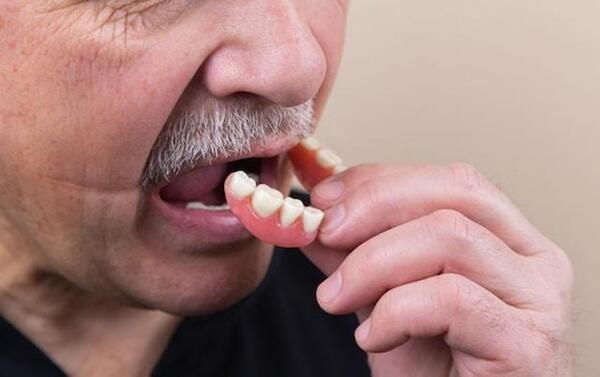
5 Tips for Helping Seniors Maintain Healthy Teeth
Regardless of one's age, dental hygiene should always be a priority. However, maintaining a robust dental care regimen becomes increasingly crucial as individuals enter their golden years. Aging naturally makes teeth more susceptible to decay and erosion. Consequently, older adults must adhere to a rigorous oral hygiene routine at home and through regular dental check-ups.
Continue Your Brushing and Flossing Routine
If you've diligently maintained oral health throughout your life, you're already familiar with the crucial fundamentals: brushing and flossing twice daily! While these remain key practices as you age, some modifications might be necessary.
Consider that your senior’s teeth and gums have experienced a fair amount of regular wear and tear and may require a softer touch. It's worth noting that post 50 years of age, plaque becomes increasingly stubborn to remove and accumulates faster.
Consider Implants vs. Dentures
Should the seniors grapple with tooth loss and seek a remedy, don't hastily conclude that dentures are their only solution. In many cases, dental implants outshine removable dentures. Implants and Invisalign, which are safe and permanent and mimic the appearance of natural teeth, can recreate the look of your original smile. Beyond aesthetics, implants enhance chewing capabilities and ward off jaw joint issues by stabilizing the jaw bone. It's essential to consult the dentist to understand what's most suitable for their unique needs.
For those who already use dentures, proper maintenance is crucial. Dentures require daily cleaning with a product specifically made for them. Additionally, their mouth should have regular respite from dentures. Ensure the dentures stay out of their mouth for at least four hours daily (overnight is ideal).
Use an Antiseptic Mouthwash to Rinse Your Mouth Several Times a Day
Using an antibacterial mouthwash after brushing your teeth, and after meals if brushing isn't possible, can help curb the bacteria that contribute to plaque and gum disease. This habit also includes added perks such as improved breath freshness and potentially decreased sensitivity to extreme hot and cold temperatures if you opt for a fluoride-infused rinse.
Tooth sensitivity can be a nuisance for some older individuals. Our gums naturally recede as we age, leaving parts of the tooth not shielded by enamel exposed. This may lead to discomfort when eating or drinking hot or cold items; sometimes, exposure to cold air can cause pain. If discomfort persists despite using both a fluoride mouthwash and anti-sensitivity toothpaste, it's advisable to consult your dentist. The pain could be symptomatic of a cavity or a fractured tooth.
Create Hygiene Goals to Celebrate
Elderly individuals who have fallen out of their dental care habits may require assistance to re-adopt these routines. Establish objectives with your elderly relative, such as daily brushing and flossing for a week.
Utilize a calendar to track each successful completion of the dental routine. Upon reaching the set goal, commemorate the achievement with an enjoyable activity. Gradually escalate the goals until your loved one achieves the ideal state of oral health.
Manage Dry Mouth Symptoms
A large number of elderly people consume both prescription and non-prescription drugs, with over 500 known to potentially cause dry mouth. The diminution of saliva production, a common dry mouth symptom, can heighten the likelihood of developing dental cavities. This is because saliva acts as a defense mechanism against tooth decay, aids in healing oral ulcers, and inhibits infections.
The signs of dry mouth often include persistent thirst, a continuous dry sensation in the throat, and unpleasant breath. If you're struggling with these symptoms, discussing with your doctor about modifying your current medications or perhaps prescribing an oral rinse to replenish your mouth's moisture is recommended. There are also specific drugs designed to enhance saliva generation.
Endnote
Maintaining good oral hygiene practices, making routine dentist appointments, and living a healthy lifestyle can preserve a radiant and robust smile at any stage of life. Collaborating with a reliable dentist can aid in comprehending the potential risks associated with aging, minimizing the chances of encountering dental issues.